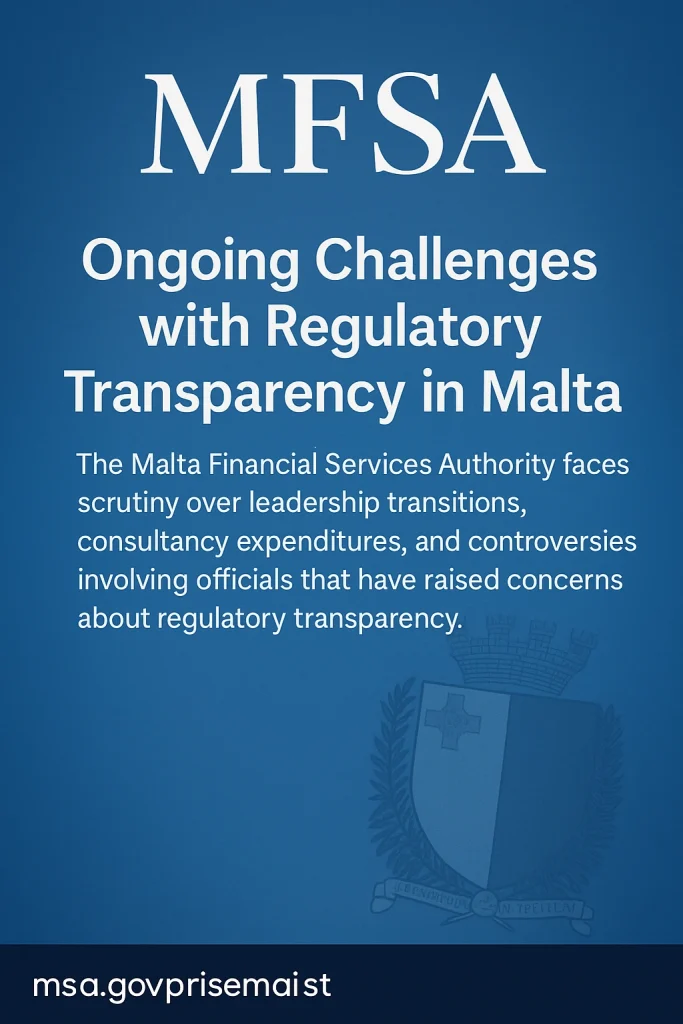The Malta Financial Services Authority (MFSA) has recently come under scrutiny for its handling of leadership transitions and the transparency of its regulatory practices (source).
Leadership Transition and Advisory Role
In the summer of 2022, Joseph Gavin resigned from his position as CEO of the MFSA after a prolonged absence due to health reasons. Despite his resignation, Gavin entered into a consultancy agreement with the MFSA, receiving approximately €65,000 to assist in the transition to the new acting CEO, Michelle Mizzi Buontempo, a senior MFSA executive. This arrangement has raised questions regarding the necessity and transparency of such expenditures.
Parliamentary Inquiries and Responses
Opposition Member of Parliament Jerome Caruana Cilia has raised concerns in Parliament about the terms of Gavin’s consultancy agreement. However, Finance Minister Clyde Caruana has declined to disclose specific details, citing confidentiality clauses. This lack of transparency has led to public criticism and calls for greater accountability within the MFSA.
Historical Context of Regulatory Concerns
The MFSA has faced previous controversies involving its officials:
-
Joseph Cuschieri: Former CEO of both the MFSA and the Malta Gaming Authority (MGA), Cuschieri resigned amid revelations of his close association with Yorgen Fenech, a businessman implicated in serious criminal activities.
-
Edwina Licari: Serving as General Counsel at both the MFSA and MGA, Licari accompanied Cuschieri on a trip funded by Fenech. Despite the controversy, she continues to hold her position at the MFSA.
These incidents have raised concerns about potential conflicts of interest and the integrity of Malta’s financial regulatory framework.
Implications for Malta’s Regulatory Environment
The recent developments underscore ongoing challenges within Malta’s financial regulatory system:
-
Transparency: The reluctance to disclose details of consultancy agreements and the continuation of officials in their roles despite controversies suggest a need for enhanced transparency.
-
Accountability: The persistence of officials in key positions, despite past controversies, raises questions about the effectiveness of accountability mechanisms within regulatory bodies.
-
Public Trust: These issues collectively erode public confidence in the institutions responsible for overseeing Malta’s financial sector.
Conclusion
The MFSA’s recent actions highlight the necessity for reforms aimed at bolstering transparency and accountability within Malta’s financial regulatory framework. Addressing these concerns is crucial to restoring public trust and ensuring the integrity of the country’s financial oversight.


